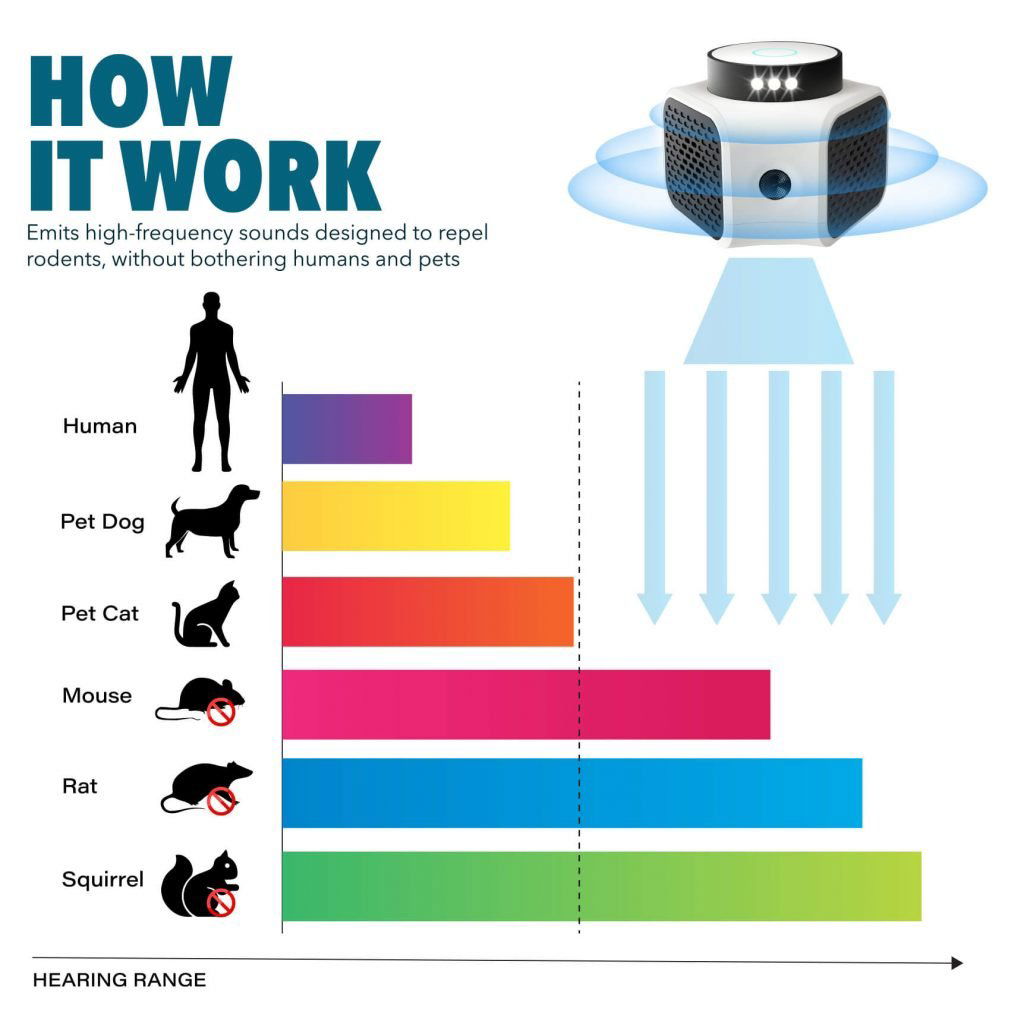Ultrasonic pest repellers are a popular choice for keeping unwanted pests like mice, rats, and insects at bay.
They are designed to emit high-frequency sounds that are unpleasant to pests but inaudible to humans.
However, you might be surprised, perhaps even concerned, when you start hearing sounds supposedly undetectable to the human ear.
Let’s explore why you can hear your ultrasonic pest repeller and what it means.
What Are Ultrasonic Pest Repellers?
Before we dive into the details of why you might hear your ultrasonic pest repeller, it’s essential to understand what these devices are and how they work.
How Ultrasonic Pest Repellers Work
Ultrasonic pest repellers emit sound waves at high frequencies, generally ranging from 20 kHz to 65 kHz.
These sound waves are designed to create an uncomfortable environment for pests, driving them away from your home without using harmful chemicals.
Pest repellers typically use:
- Ultrasound: Frequencies above 20 kHz, beyond the range of what most humans can hear.
- Pulsed Sound: Short bursts of ultrasound rather than a continuous sound.
- Variable Frequencies: Altering the frequency to avoid pests getting used to the sound.

Why Can You Hear Your Ultrasonic Pest Repeller?
Although these devices are marketed as silent for humans, some people do report hearing them. There are several reasons why this might happen:
1. Age and Hearing Sensitivity
Human hearing capabilities can vary significantly from person to person.
Younger individuals, especially children and teenagers, often have a higher sensitivity to high frequencies compared to adults.
As we age, our ability to hear high-frequency sounds typically decreases, a condition called presbycusis.
2. Frequency Ranges
Not all ultrasonic pest repellers operate solely in the ultrasonic range (above 20 kHz).
Some devices also generate sounds in the lower frequency range that can be detected by human ears.
If your repeller produces sound waves near or around 20 kHz, there’s a good chance some adults and children might hear it.
3. Device Malfunction
In some cases, the ultrasonic pest repeller might not be functioning correctly, emitting sounds within the audible range for humans.
This can happen due to manufacturing defects or extended wear and tear.
Here are some telltale signs:
- Audible Buzzing or Clicking Sounds: Consistent or intermittent noises.
- Changes in Sound Pattern: Sudden shifts in the noise produced.
4. Environmental Factors
The environment in which the ultrasonic pest repeller operates can also impact the sounds you hear. Factors include:
- Reflective Surfaces: Hard surfaces like tiles, glass, or metal can reflect sound waves, sometimes amplifying them or altering their frequency.
- Room Acoustics: Furnished versus unfurnished rooms can vary in how they absorb or reflect sound.
What to Do If You Hear Your Ultrasonic Pest Repeller
If you can hear your ultrasonic pest repeller, here are some steps you can take:
- Verify the Frequency: Check the specifications of your device to see at what frequency it operates. If it’s close to the upper limit of human hearing, consider switching to a different model.
- Inspect for Damage: Look for any visible signs of damage and make sure the device is functioning correctly.
- Change Location: Try placing the device in a different part of your home to see if the sound is less audible.
- Contact Manufacturer: Reach out for support or a replacement if you suspect a malfunction.
Alternatives to Ultrasonic Pest Repellers
If the sound persists and remains bothersome, you might want to consider other pest control methods:
- Traditional Traps: Snap traps, glue boards, and live traps.
- Natural Repellents: Essential oils like peppermint and eucalyptus.
- Chemical Solutions: Insecticides or rodenticides, used with caution.
- Integrated Pest Management (IPM): Combining multiple strategies for more effective control.
Conclusion
While ultrasonic pest repellers are a convenient and non-toxic option for pest control, the sounds they emit can sometimes be heard by humans due to various factors like age, device malfunction, or environmental elements.
By understanding these aspects, you can make informed decisions and find the most suitable pest control solutions for your home.
If you have any questions or need further advice, feel free to reach out to our team of experts. We’re here to help you create a pest-free and comfortable living environment!